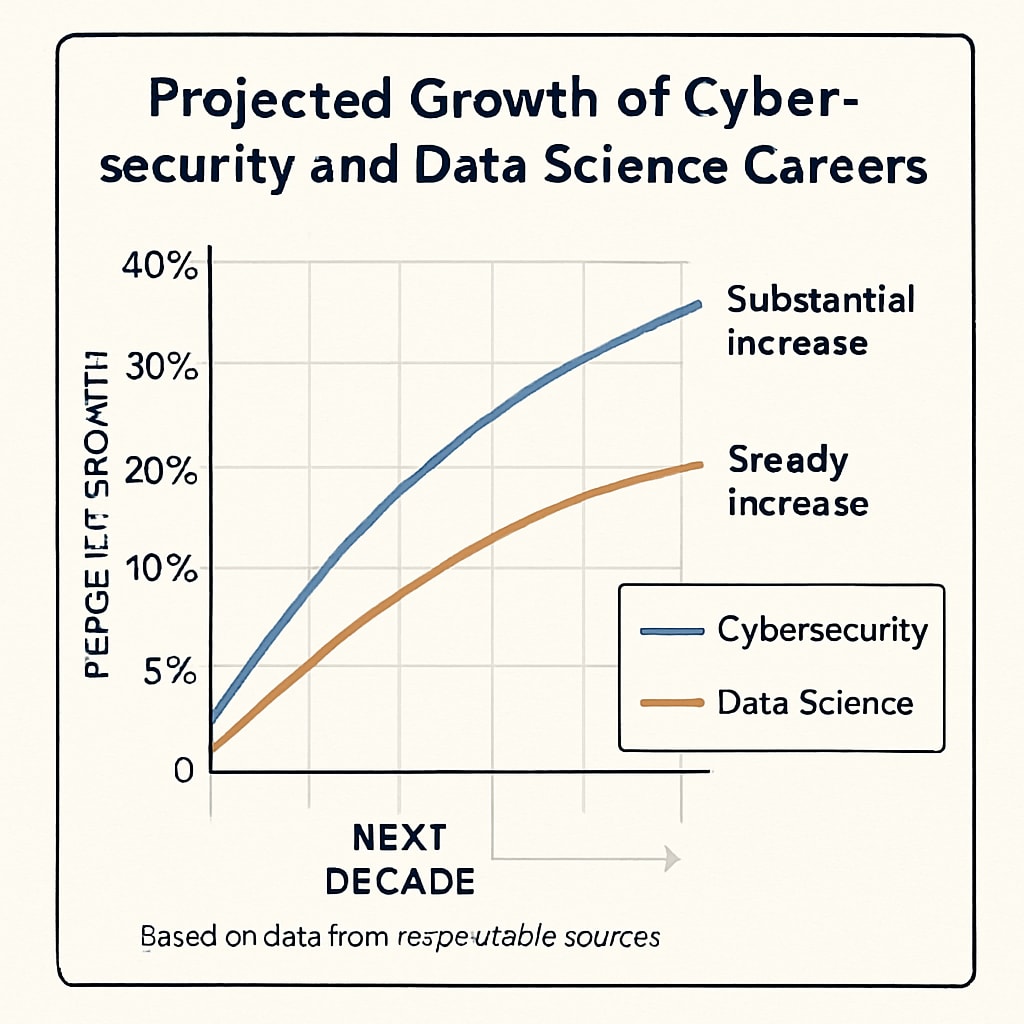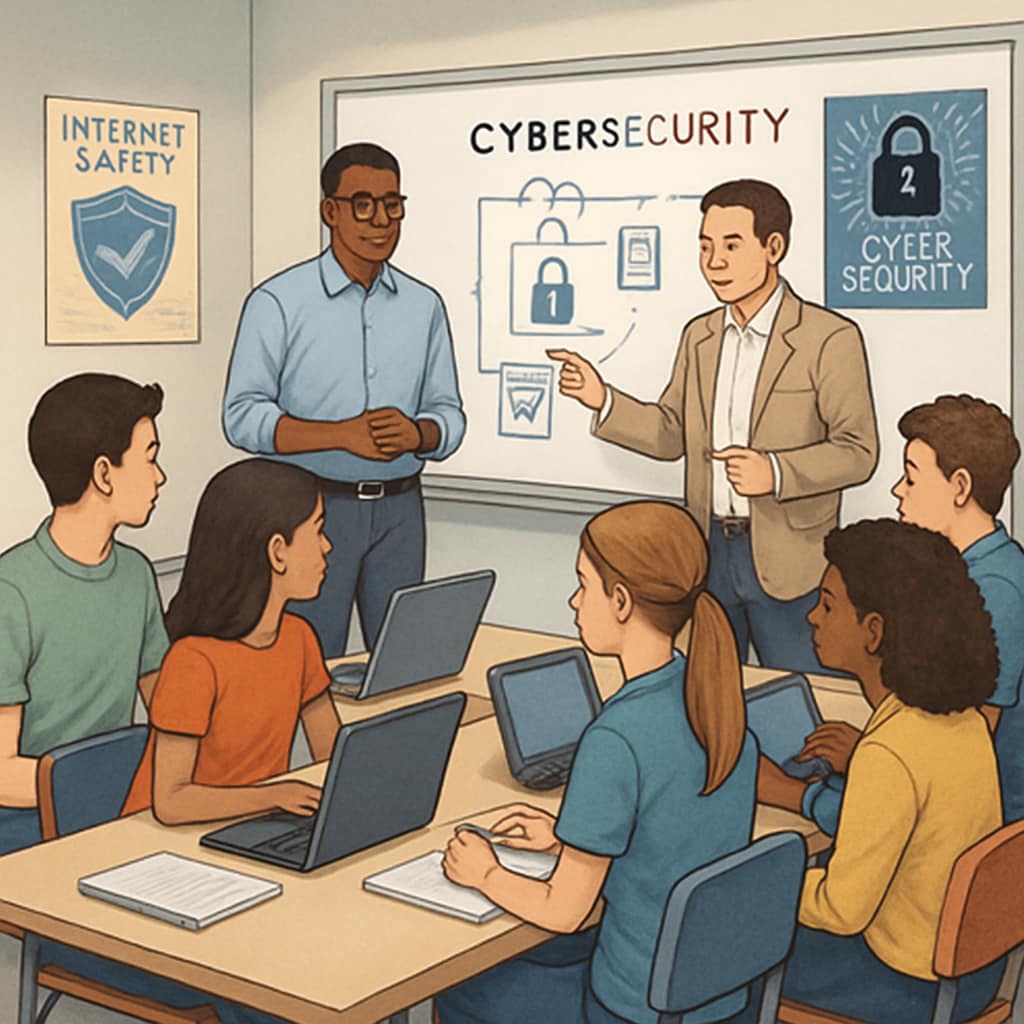In today’s rapidly evolving digital age, cybersecurity, data science engineering, and career choices have become focal points for aspiring professionals. As the demand for digital expertise grows, these fields are increasingly recognized for their robust career prospects and high-impact roles. To ensure future readiness, educators and parents must consider how to foster awareness and interest in these domains during the K12 education phase. By doing so, students can develop the foundational knowledge and passion needed to navigate these promising career paths.
Understanding the Demand for Cybersecurity and Data Science Careers
The rise of digital transformation has brought with it unprecedented levels of data generation and connectivity. However, this also comes with significant risks, such as data breaches, cyberattacks, and ethical concerns surrounding data usage. This is where cybersecurity and data science come into play.
Cybersecurity professionals are tasked with protecting sensitive information from unauthorized access, ensuring the integrity of digital systems. On the other hand, data science engineers analyze complex datasets to derive actionable insights, empowering businesses to make data-driven decisions. Both fields are vital to the functioning of modern society and have demonstrated exponential growth in job opportunities. According to the U.S. Bureau of Labor Statistics, cybersecurity jobs are projected to grow by 35% from 2021 to 2031, while data science roles are expected to increase by 36% in the same period.

These statistics highlight the urgent need for a workforce skilled in these areas. For K12 students, exposure to these fields early on can spark interest and set them on a path toward fulfilling, impactful careers.
How K12 Education Can Foster Early Interest
Introducing cybersecurity and data science concepts during the K12 years can significantly influence students’ future career trajectories. Here are some practical approaches:
- Curriculum Integration: Incorporating foundational topics such as coding, data analysis, and digital ethics into the school curriculum can give students a taste of these fields.
- Hands-On Learning: Encouraging participation in coding bootcamps, hackathons, or cybersecurity competitions enables students to apply their skills in real-world scenarios.
- Mentorship Programs: Pairing students with professionals in cybersecurity and data science provides valuable insights into daily job responsibilities and industry challenges.
- Awareness Campaigns: Hosting career fairs and workshops that highlight the importance of these fields can inspire students to explore them further.
These strategies not only build technical skills but also nurture problem-solving abilities, critical thinking, and creativity—key traits for success in both cybersecurity and data science.

The Career Outlook: Cybersecurity vs. Data Science
While both fields offer strong career prospects, their pathways and focus areas differ:
- Cybersecurity: Careers in cybersecurity range from penetration testers and security analysts to chief information security officers (CISOs). Professionals in this field focus on safeguarding systems, identifying vulnerabilities, and mitigating risks.
- Data Science: Data scientists, machine learning engineers, and data architects focus on extracting meaningful patterns from large datasets. Their work drives innovation across industries, including healthcare, finance, and technology.
Both industries offer competitive salaries and opportunities for growth. For example, cybersecurity professionals can earn an average of $120,000 annually, while data scientists often command similar figures, depending on their expertise and roles. Moreover, as organizations increasingly rely on digital solutions, the demand for skilled professionals in these fields will only continue to rise.
Preparing Students for the Future
To prepare students for careers in cybersecurity and data science, K12 education must adopt a holistic approach that combines technical education with soft skills development. For instance, teaching teamwork, communication, and ethical decision-making alongside technical skills ensures that students are versatile and ready for the workplace.
Additionally, partnerships with universities and tech companies can provide students with access to advanced resources, internships, and scholarships. By building a robust support system, educators can help bridge the gap between academic learning and industry requirements.
In conclusion, the digital age has created immense opportunities in cybersecurity and data science. By nurturing awareness and equipping students with the necessary skills during their formative years, we can empower the next generation to thrive in these dynamic and impactful fields.
Readability guidance: This article uses clear, concise language and structured sections to enhance understanding. Lists and examples are included to break down complex ideas, ensuring accessibility for a broad audience.


